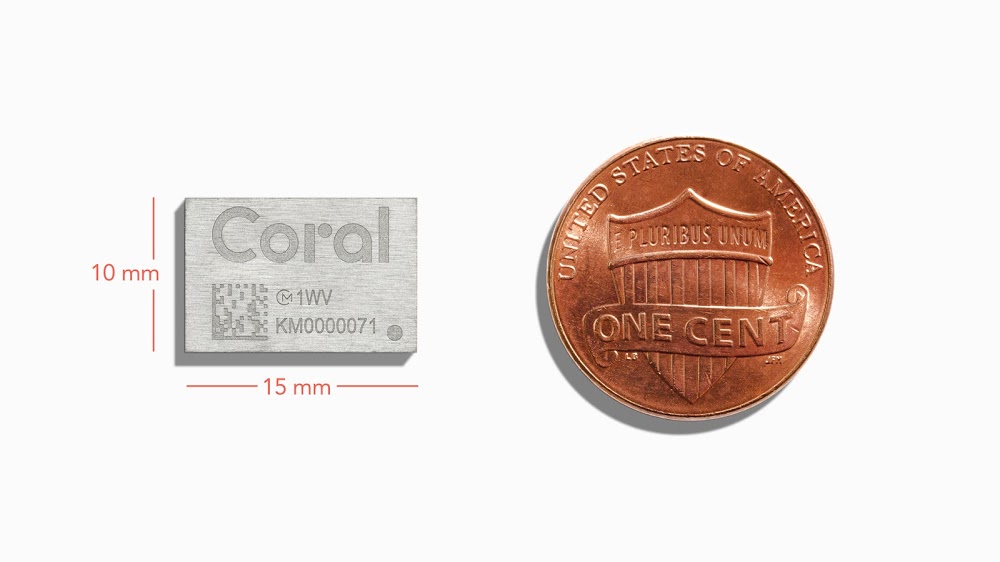Google Announces Two New Coral AI Products for 2020
Meet the Coral Accelerator Module and Coral Dev Board Mini.
It seems like Google just couldn't wait until CES 2020 next week to announce new hardware. Yesterday the company announced two new artificial intelligence (AI) products, the Coral Accelerator Module and Coral Dev Board Mini, that it plans to release in early 2020.
Google officially announced Coral in March 2019; the platform emerged from beta that October. The first products--a development board and USB accelerator--featured an embedded Edge tensor processing unit (TPU) machine learning chip.
The platform's goal was to help developers create AI that works locally rather than relying on a connection to cloud-based systems. That could lead to more efficient (and more private) utilities that don't require Internet access to function.
Google said its plan for Coral in 2020 will start with the Coral Accelerator Module and Coral Dev Board Mini. The company also updated its Coral System-on-Module with 2GB and 4GB LPDDR4 memory options; it was previously limited to just 1GB of RAM.
The Coral Accelerator Module is "an easy to integrate multi-chip package that encapsulates the Edge TPU ASIC" that Google made with Murata. It's said to "easily integrate into custom PCB designs" by virtue of its exposed PCIe and USB interfaces.
The Coral Dev Board Mini is exactly what it sounds like: Google said that it wanted to make "a smaller form-factor, lower-power and lower-cost alternative to the Coral Dev Board." It's equipped with the Coral Accelerator Module and a MediaTek 8167s processor.
More details about the new Coral products are available on the platform's website. Google said it plans to release the Coral Accelerator Module and Coral Dev Board Mini in the first half of 2020; the company didn't provide any details about pricing.
Get Tom's Hardware's best news and in-depth reviews, straight to your inbox.

Nathaniel Mott is a freelance news and features writer for Tom's Hardware US, covering breaking news, security, and the silliest aspects of the tech industry.
